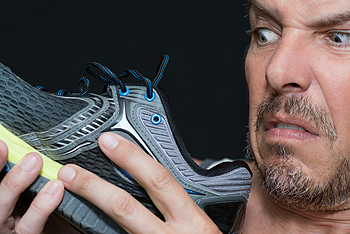 People who have the desire to learn about the treatment and prevention of foot disorders may work in the field of podiatry. They learn about how the foot is constructed, and the importance of maintaining proper foot care. The levels of education consist of earning a bachelor's degree, followed by enrolling in a college of podiatric medicine. This is a four year program, and incorporates two years of laboratory work. Upon completion, the student will become a doctor of podiatric medicine, which is referred to as a DPM. Residency training provides the skills needed to perform a variety of foot surgeries, in addition to learning about different medical techniques. If you are interested in pursuing a career in podiatry, it is advised that you confer with a podiatrist who can guide you in determining if this is a correct choice for you.
People who have the desire to learn about the treatment and prevention of foot disorders may work in the field of podiatry. They learn about how the foot is constructed, and the importance of maintaining proper foot care. The levels of education consist of earning a bachelor's degree, followed by enrolling in a college of podiatric medicine. This is a four year program, and incorporates two years of laboratory work. Upon completion, the student will become a doctor of podiatric medicine, which is referred to as a DPM. Residency training provides the skills needed to perform a variety of foot surgeries, in addition to learning about different medical techniques. If you are interested in pursuing a career in podiatry, it is advised that you confer with a podiatrist who can guide you in determining if this is a correct choice for you.
If you are experiencing pain in the feet or ankles, don’t join the stubborn majority refusing treatment. Feel free to contact Dr. Craig Campbell from Salt Lake City, Utah. Our doctor can provide the care you need to keep you pain-free and on your feet.
What Is a Podiatrist?
Someone would seek the care of a podiatrist if they have suffered a foot injury or have common foot ailments such as heal spurs, bunions, arch problems, deformities, ingrown toenails, corns, foot and ankle problems, etc.
Podiatric Treatment
A podiatrist will treat the problematic areas of the feet, ankle or lower leg by prescribing the following:
- Physical therapy
- Drugs
- Orthotic inserts or soles
- Surgery on lower extremity fractures
A common podiatric procedure a podiatrist will use is a scanner or force plate which will allow the podiatrist to know the designs of orthotics. Patients are then told to follow a series of tasks to complete the treatment. The computer will scan the foot a see which areas show weight distribution and pressure points. The podiatrist will read the analysis and then determine which treatment plans are available.
If you have any questions please feel free to contact our office located in Salt Lake City, UT. We offer the newest diagnostic and treatment technologies for all your foot and ankle needs.
Read more about What is a Podiatrist? If your feet sweat profusely, you may have a condition that is referred to as plantar hyperhidrosis. It is considered to be a rare medical ailment that typically affects approximately three percent of the population. Many patients who have this condition are aware of how their quality of life is affected. Common side effects of feet that sweat excessively can consist of soggy shoes and socks, and the feet may feel cold the majority of the time. Research has indicated this condition is generally caused by hyperactive sweat glands. The circumstances that may trigger sweating can include increased temperatures or stressful situations. If you are suffering from plantar hyperhidrosis, it is strongly advised that you consult with a podiatrist who can properly diagnosis and treat this condition.
If your feet sweat profusely, you may have a condition that is referred to as plantar hyperhidrosis. It is considered to be a rare medical ailment that typically affects approximately three percent of the population. Many patients who have this condition are aware of how their quality of life is affected. Common side effects of feet that sweat excessively can consist of soggy shoes and socks, and the feet may feel cold the majority of the time. Research has indicated this condition is generally caused by hyperactive sweat glands. The circumstances that may trigger sweating can include increased temperatures or stressful situations. If you are suffering from plantar hyperhidrosis, it is strongly advised that you consult with a podiatrist who can properly diagnosis and treat this condition.
If you are suffering from hyperhidrosis contact Dr. Craig Campbell of Salt Lake City, Utah. Our doctor can provide the care you need to attend to all of your foot and ankle needs.
Hyperhidrosis of the Feet
Hyperhidrosis is a rare disorder that can cause people to have excessive sweating of their feet. This can usually occur all on its own without rigorous activity involved. People who suffer from hyperhidrosis may also experience sweaty palms.
Although it is said that sweating is a healthy process meant to cool down the body temperature and to maintain a proper internal temperature, hyperhidrosis may prove to be a huge hindrance on a person’s everyday life.
Plantar hyperhidrosis is considered to be the main form of hyperhidrosis. Secondary hyperhidrosis can refer to sweating that occurs in areas other than the feet or hands and armpits. Often this may be a sign of it being related to another medical condition such as menopause, hyperthyroidism and even Parkinson’s disease.
In order to alleviate this condition, it is important to see your doctor so that they may prescribe the necessary medications so that you can begin to live a normal life again. If this is left untreated, it is said that it will persist throughout an individual’s life.
A last resort approach would be surgery, but it is best to speak with your doctor to find out what may be the best treatment for you.
If you have any questions please feel free to contact our office located in Salt Lake City, UT. We offer the newest diagnostic and treatment technologies for all your foot and ankle needs.
Read more about Hyperhidrosis of the Feet The condition that is known as cracked heels often causes pain and discomfort. It can occur as a result of dry skin and will generally affect the outer edges of the heel. If the cracks are deep, they are referred to as fissures. There are several reasons why this condition can develop. These can include standing for long periods of time throughout the day, wearing shoes that have an open back, or existing medical conditions such as psoriasis. Some patients find moderate relief when they soak their feet in warm water, followed by using a good moisturizer that may help to restore soft skin. If you have a severe case of cracked heels, it is advised that you consult with a podiatrist who can offer treatment and relief solution
The condition that is known as cracked heels often causes pain and discomfort. It can occur as a result of dry skin and will generally affect the outer edges of the heel. If the cracks are deep, they are referred to as fissures. There are several reasons why this condition can develop. These can include standing for long periods of time throughout the day, wearing shoes that have an open back, or existing medical conditions such as psoriasis. Some patients find moderate relief when they soak their feet in warm water, followed by using a good moisturizer that may help to restore soft skin. If you have a severe case of cracked heels, it is advised that you consult with a podiatrist who can offer treatment and relief solution
If the skin on your feet starts to crack, you may want to see a podiatrist to find treatment. If you have any concerns, contact Dr. Craig Campbell from Salt Lake City, Utah. Our doctor can provide the care you need to keep you pain-free and on your feet.
Cracked Heels
It is important to moisturize your cracked heels in order to prevent pain, bleeding, and infection. The reason cracked heels form is because the skin on the foot is too dry to support the immense pressure placed on them. When the foot expands, the dry skin on the foot begins to split.
Ways to Help Heal Them
- Invest in a good foot cream
- Try Using Petroleum Jelly
- Ease up on Soaps
- Drink Plenty of Water
Ways to Prevent Cracked Heels
- Moisturize After Showering
- Skip a Shower
- Keep Shower Water Lukewarm
- Don’t Scrub Your Feet
If you are unsure how to proceed in treating cracked heels, seek guidance from a podiatrist. Your doctor will help you with any questions or information you may need.
If you have any questions, please feel free to contact our office located in Salt Lake City, UT. We offer the newest diagnostic and treatment technologies for all your foot care needs.
Read more about Solutions for Cracked Heels






